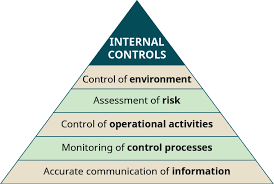Description
Introduction to Internal Controls
Internal controls are essential mechanisms that organizations implement to ensure the integrity of financial and operational processes. These controls help mitigate risks, ensure compliance with laws, and enhance the efficiency of operations.
Preventive Controls
Preventive controls are designed to deter errors or fraud before they occur. Examples include segregation of duties, proper authorization of transactions, and comprehensive training programs for employees.
Detective Controls
Detective controls aim to identify errors or irregularities that have already transpired. Regular audits, reconciliations, and inventory counts fall under this category, ensuring any discrepancies are promptly discovered and addressed.
Corrective Controls
Corrective controls are measures implemented to rectify issues identified by detective controls. These may involve updating policies, revising procedures, and conducting follow-up audits to ensure problems are resolved and prevented from reoccurring.



Reviews
There are no reviews yet.